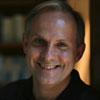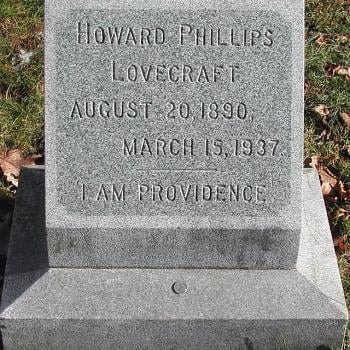By Greg Garrett
 When I was a kid, I read two books about football that were life-changing for me . . . eventually. (I'm not counting here Bart Starr's book about how to play quarterback, which I bought at a middle school book fair; although I had high hopes, all the books in the world about quarterbacking would not have turned me into a good one.) One book was Brian's Song, a biography about the Chicago Bears' running back Brian Piccolo, who died young of cancer and was immortalized in a heart-rending biopic of the same name. The other was his friend Gale Sayers' autobiography I Am Third, in which one of the greatest running backs of the day told his story, Brian's, and explained his personal philosophy.
When I was a kid, I read two books about football that were life-changing for me . . . eventually. (I'm not counting here Bart Starr's book about how to play quarterback, which I bought at a middle school book fair; although I had high hopes, all the books in the world about quarterbacking would not have turned me into a good one.) One book was Brian's Song, a biography about the Chicago Bears' running back Brian Piccolo, who died young of cancer and was immortalized in a heart-rending biopic of the same name. The other was his friend Gale Sayers' autobiography I Am Third, in which one of the greatest running backs of the day told his story, Brian's, and explained his personal philosophy.
Gale Sayers was a great player, and during my childhood I would have described him as one of my heroes; like many of us, I made very little distinction in my head between celebrity and heroism, and honestly, in those halcyon days a lot of famous people seemed to actually be worthy of adulation. While Sayers was clearly the greater talent on the field, he regarded Brian Piccolo as a hero for his courage and tenacity off the field, and I remember weeping -- and still choke up now as a grown man -- when I think about the scene in the film Brian's Song where Sayers (Billy Dee Williams), in accepting the George S. Halas Award for Courage, draws attention to his friend's bravery and away from himself:
You flatter me by giving me this award. But I say to you here and now, Brian Piccolo is the man of courage who should receive the George S. Halas Award. It is mine tonight, Brian Piccolo's tomorrow. I love Brian Piccolo, and I'd like all of you to love him too. And tonight, as you hit your knees, please ask God to love him.
I've been talking a lot about celebrity in the last few weeks as I've been promoting my book on Harry Potter, for the distinctions between heroes and celebrities are as clear -- and yet, as little recognized -- in Harry Potter's world as in our own. After railing about Paris Hilton as an example of much that is wrong with American society in a conversation about celebrity last Wednesday night at a university in Hays, Kansas (I may have gotten a little carried away in the American heartland), on Thursday I was presented at a workshop in Hays with a pink Paris Hilton heiress diary in which I can record my most secret thoughts -- and note the five best things about being an heiress.
I was hoping for a Mother Teresa bobblehead, but there you go.
As part of these conversations about celebrity, I have been talking (as we did in last week's column, not for the last time, I am sure) about American individualism, about American secular values, and about the movements currently sweeping the nation that want to allow people to keep more of the money they earn, to avoid being affected by laws and regulations they consider unnecessary, and to focus largely on taking care of themselves and those in their immediate circle.
I discussed their "Don't Tread on Me" slogan last week. During the Revolutionary War, that saying sent a message to repressive tyrants about our willingness to die for our God-given rights. But as we noted last week, when taken to an extreme or made an absolute value, this desire for freedom can be destructive both to individuals and to communities. If one of my gods is my own individual freedom, my own ability to (supposedly) control my destiny, then I am going to set the bar for potential tyrants pretty low. Anyone asking me to be, say, my brother's keeper, may start to sound to me like a socialist. A fascist. Any other alarmist label circled and underlined three times.
And as I said last week, if we're not careful, "Don't Tread on Me" can become "It's All about Me." I've got mine; why doesn't everybody else get theirs?
Which is why I bring up Paris Hilton, and Harry Potter, and Gale Sayers: these pop culture icons teach us something about our desire to accumulate wealth, power, and fame (and to venerate those who have them), about the perils of individualism, and about the virtues of loving self-sacrifice. Paris Hilton is famous because she's beautiful (if you like that look) and wealthy, but (do correct me if I'm wrong) she has yet to live a self-sacrificing day on earth. Harry Potter could have been famous simply on the strength of things he didn't control (like Paris Hilton being born wealthy), but he became a hero to his community because he thought more of others than he did of himself. And Gale Sayers was and remains a hero to me because he could have leveraged his extraordinary talent simply into wealth and fame, could have made things all about himself. But the title of his autobiography has been a lesson to me my whole life, even when I haven't managed to live my life by it.





